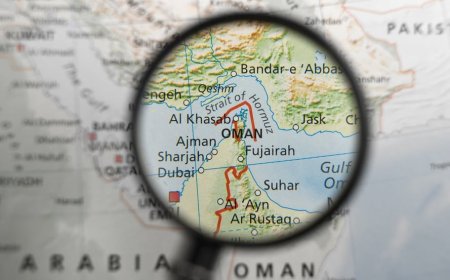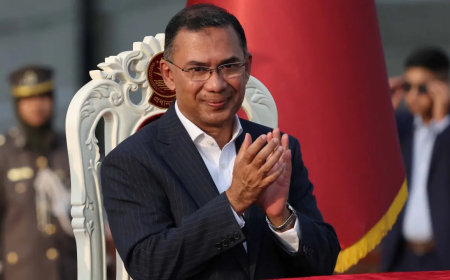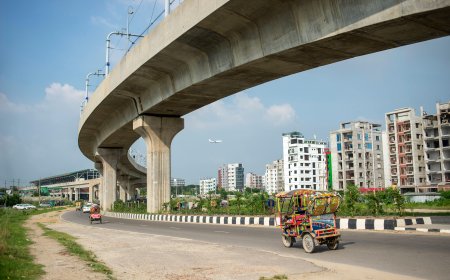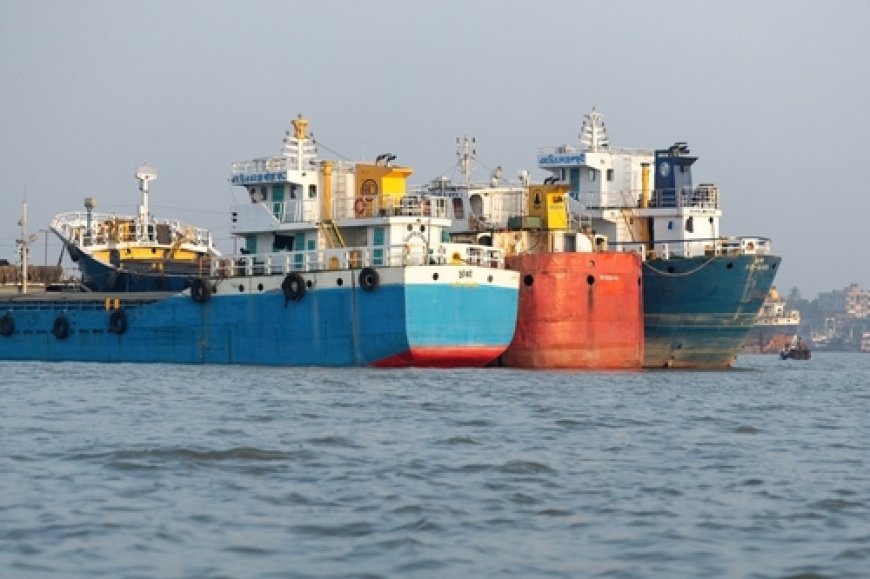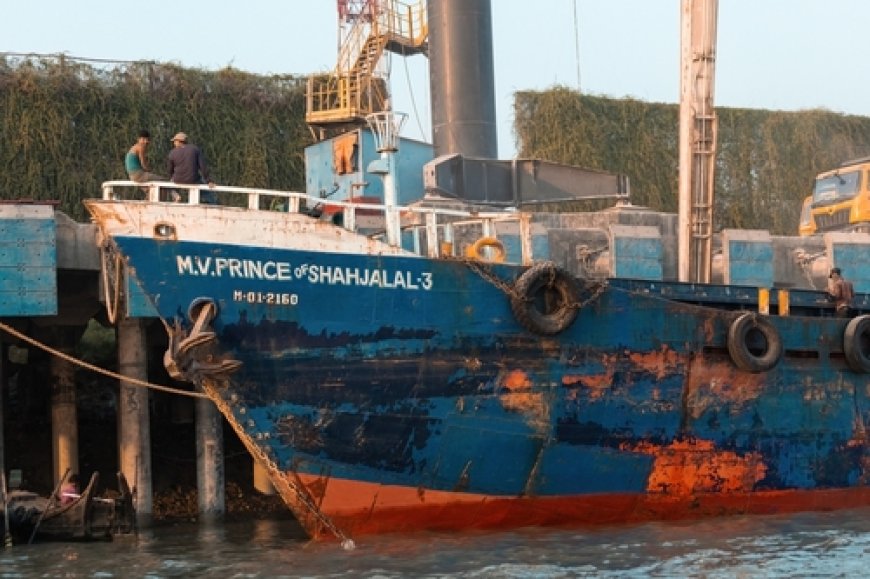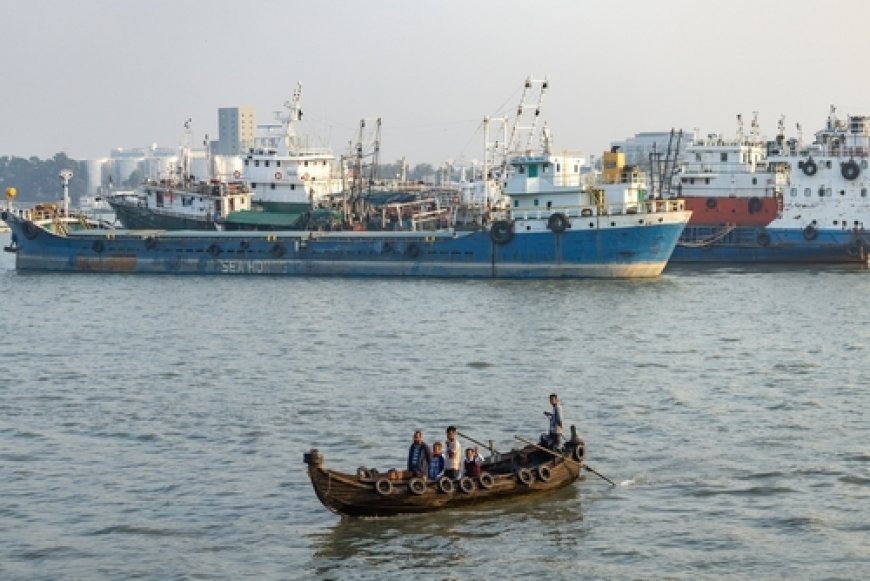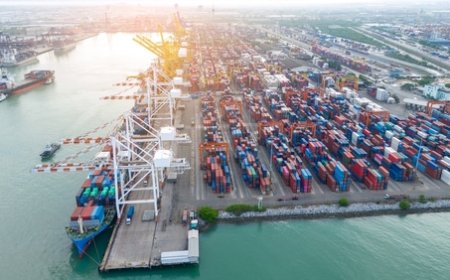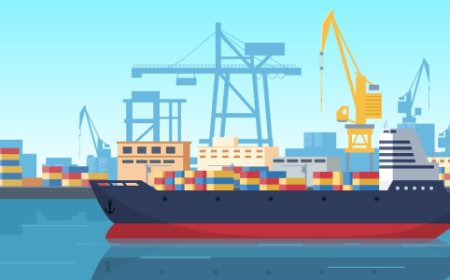Why We Must Reform Chittagong Port by Bringing in Global Expertise Now
An inefficient private local company is driving port operations into the ground. We could enhance exports by bringing in an international operator. If we don't act now, it will only cost us that much more in the future.
Bangladesh’s export ambitions are being throttled by inefficiencies at Chittagong Port, especially at the New Mooring Container Terminal (NCT), currently operated by Saif Powertec Ltd. Despite the terminal’s critical role in our economy, its performance remains a major bottleneck -- costly delays, opaque operations, and outdated infrastructure continue to frustrate exporters.
But here’s where the story goes from bad to worse. The very company running this strategic terminal is mired in serious controversy.
Md Ruhul Amin, Managing Director of Saif Powertec Ltd, allegedly has long-standing ties to the previous government, reportedly enjoyed special treatment even while facing Anti-Corruption Commission (ACC) charges back in November 2020.
On March 20 this year, United Commercial Bank initiated legal proceedings to auction off Saif Powertec’s assets to recover over Tk 517 crore in unpaid loans.
How can a company struggling financially -- and shielded by political connections -- be trusted to operate the gateway to our exports? This situation undermines efficiency, transparency, and investment at a crucial moment for Bangladesh’s economy.
Countries that brought in international terminal operators under transparent PPP models have seen dramatic improvements in port performance. For example:
• Vietnam’s Cai Mep Port became one of the region’s most efficient after partnering with APM Terminals (Maersk Group)
• India’s JNPT Port improved dwell times after bringing in DP World and other global logistics players
• Rwanda improved export performance by tapping international logistics expertise at Dar es Salaam Port (run with Dubai Ports World).
• Kenya’s Mombasa Port halved turnaround times after bringing in ICTSI, a global terminal operator
These aren’t miracles -- they’re the results of smart partnerships, accountability, and real-world competence. Bangladesh can absolutely do the same.
The turnaround time at Chittagong Port must be cut to just one day -- from raw material arrival at port to factory -- to compete globally. Anything longer risks losing billions of dollars of orders which are now moving to other countries.
It’s time for Bangladesh to follow proven models: replace Saif Powertec with an international operator capable of delivering transparency, efficiency, and professionalism. The export sector -- and thus our economy -- depend on it.
Why DP World is a Game-Changer for Chittagong
If DP World were brought in to operate NCT or other terminals in Chittagong, the transformation would be immediate and measurable:
Turnaround times: Instead of the current 7–11 days, DP World would bring this down to 1–2 days, using their proprietary logistics software, AI-based cargo scheduling, and real-time container tracking systems.
Digitization: DP World’s terminals around the world are known for using fully digital documentation, port community systems, and smart inventory management. This would eliminate layers of red tape currently choking our exporters.
Global Standards: DP World’s reputation ensures stricter compliance with global trade rules, safer working conditions, and more predictable logistics -- essential for export buyers operating on tight timelines.
Supply Chain Integration: They connect exporters directly with a global shipping network -- integrating trucking, rail, and maritime operations into a single seamless ecosystem.
The government must make bold, clear decisions now or risk letting political patronage and inefficiency sabotage Bangladesh’s export potential.
What's Your Reaction?








